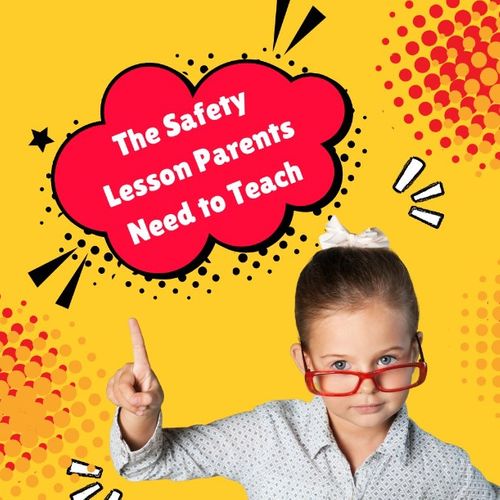The Safety Lesson Every Parent Should Be Teaching Their Child
Feb 26, 2023 · 2 mins read
0
Share
From the moment you bring your bundle of joy home there is a natural drive to protect them. From baby-proofing your home to navigating a curfew, safety is critically important. But when it comes to preventing child abuse, many parents aren’t sure where to begin.
Save
Share
Fortunately there are simple steps you can take to help protect your child from the unthinkable. This can begin as soon as your child can talk. Many parents put off these conversations until their children are older, but it’s crucial to be intentional from a young age.
Save
Share
To begin with, it is important to teach your child the proper names for body parts—including the vulva and penis. This helps children get the help they need if abuse ever happens. There have been times help was delayed because adults didn’t understand the nicknames children used.
Save
Share
From a young age teach your child that the parts of their body covered by their swimsuit are private. Focus on those parts being special (not shameful) because of who gets to see and touch them—only themselves and parents and doctors who are keeping them healthy and clean.
Save
Share
Teach your child about safe and unsafe touch. Safe touch is touch that makes them feel good and is on the parts of our body not covered by a swimsuit. Unsafe touch is touch that is painful, makes them feel uncomfortable, or is on a private body part.
Save
Share
Next, teach them about strange behaviors—not strangers. The sad reality is that 90% of child abuse is perpetrated by someone the child knows. So teach children what behaviors are “strange” and what to do if someone (whether a stranger, a loved one, or a friend) acts that way.
Save
Share
One strange behavior is secret keeping. Teach the difference between safe and unsafe secrets. Safe secrets are temporary and feel good to keep, like a party. Unsafe secrets make them feel uncomfortable, are about private body parts, or are ones they are asked to never tell.
Save
Share
Teach your child that other strange behavior includes wanting to spend time with them without parents knowing and giving them secret gifts. Asking them to get in their vehicle, go to a private space, or enter their home without their parent’s consent is also a strange behavior.
Save
Share
Finally, it is critical that you teach them what to do if they encounter this type of behavior. Teach your child to say no, run away, and tell a safe adult. Teach them to keep telling until they get the help they need. And teach them that it is never their fault if this happens.
Save
Share
These lessons are simple to do, but they must be reinforced on a regular basis. So get out your phone, set a calendar reminder, and have these conversations often. Having these conversations is critical to keeping your children safe and preventing abuse.
Save
Share
0
